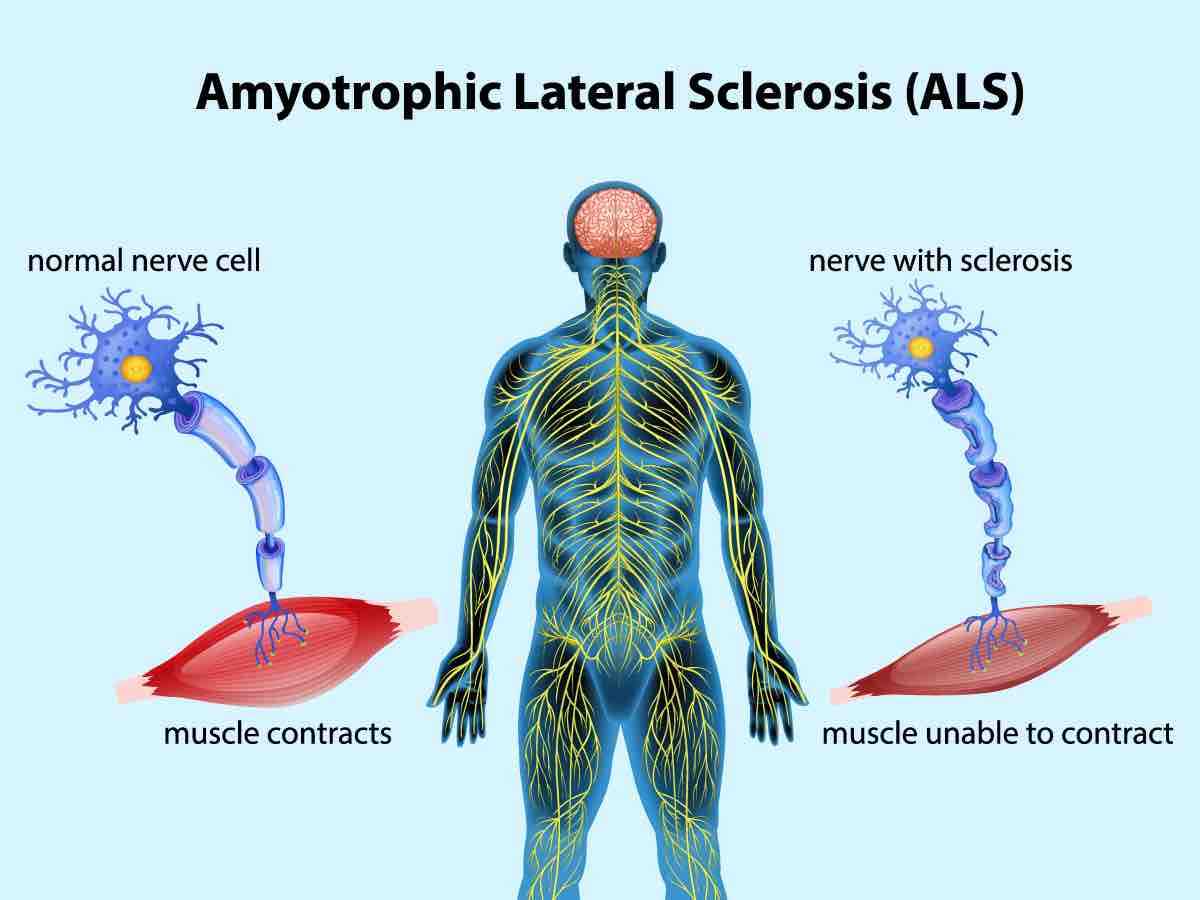Is ALS Hereditary? Genetic Risks Explained
Is ALS hereditary? Discover the genetic risks, key mutations, and what families should know about familial ALS and sporadic ALS.
H2: What Is ALS and How Does It Affect the Body?
Amyotrophic Lateral Sclerosis (ALS), also known as Lou Gehrig’s disease, is a progressive neurodegenerative disorder that affects nerve cells in the brain and spinal cord. Over time, ALS causes the motor neurons controlling voluntary muscles to deteriorate, leading to muscle weakness, loss of movement, and eventually paralysis.
H2: Types of ALS: Familial vs Sporadic
There are two primary types of ALS:
H3: Familial ALS (fALS)
Familial ALS accounts for 5% to 10% of all cases and is directly linked to genetic mutations passed through families. It typically follows an autosomal dominant inheritance pattern, meaning only one parent needs to carry the faulty gene for a child to be at risk.
H3: Sporadic ALS (sALS)
The majority—90% to 95%—of ALS cases are classified as sporadic, meaning they occur without a known family history. While sporadic ALS doesn’t appear to be inherited in the traditional sense, genetic factors may still contribute in some cases.
H2: Key ALS-Related Genetic Mutations
H3: C9orf72 Hexanucleotide Repeat
The C9orf72 gene mutation is the most common genetic cause of ALS, especially in familial cases. It’s also linked to frontotemporal dementia (FTD).
H3: SOD1 Mutation
Mutations in the SOD1 gene were the first identified genetic cause of ALS. Over 180 different SOD1 mutations have been associated with the disease.
H3: TARDBP and FUS
Other significant mutations include TARDBP and FUS, both of which play roles in RNA processing and protein regulation, critical for healthy neuron function.
H2: Is ALS Hereditary? Understanding Your Risk
If someone in your immediate family has ALS, your risk of developing the disease increases, particularly with known familial ALS. Here’s a breakdown:
-
With a first-degree relative (parent or sibling) with ALS: Your risk is higher than average, especially if it’s familial ALS.
-
With no family history: Risk is much lower, but not zero.
A genetic counselor can help evaluate your risk and explain whether genetic testing may be beneficial.
H2: Should You Get Genetic Testing for ALS?
Genetic testing can help determine if you carry any known ALS-related mutations, especially if:
-
You have a family history of ALS or frontotemporal dementia.
-
You’re planning for children and want to understand inherited risks.
-
You want more clarity about the cause of a diagnosis.
However, not all ALS mutations are well understood. Some results may be inconclusive.
H2: Living With a Genetic Diagnosis
Receiving a positive result for a gene mutation doesn’t mean you will definitely develop ALS. Many people carry mutations and never develop symptoms. But a diagnosis can help:
-
Inform family members.
-
Guide future planning.
-
Connect with clinical trials or research.
H2: Can ALS Be Prevented If It’s Genetic?
Currently, there is no known way to prevent ALS, whether hereditary or sporadic. However, identifying your genetic risk may help in early detection, monitoring, and enrollment in experimental therapies.
H2: ALS Research and Hope for the Future
Researchers are working to better understand the genetic basis of ALS, with promising developments in:
-
Gene therapy targeting SOD1 and C9orf72 mutations.
-
RNA-based treatments for correcting faulty gene expression.
-
Biomarker discovery to improve early diagnosis and treatment response.
H2: Final Thoughts: Genetic Insights into ALS
Understanding whether ALS is hereditary is key to making informed decisions about your health and your family’s future. While most ALS cases are not inherited, the role of genetic mutations in ALS is an active and hopeful area of research.
H2: Keywords Summary for Medical SEO
To help this article rank well on Google and serve users seeking credible answers, the following medical keywords and search terms are naturally incorporated:
-
Is ALS hereditary
-
Genetic mutations in ALS
-
Familial vs sporadic ALS
-
C9orf72 ALS mutation
-
ALS genetic testing
-
Hereditary neurodegenerative disease
-
SOD1 gene ALS
-
Inherited ALS symptoms

